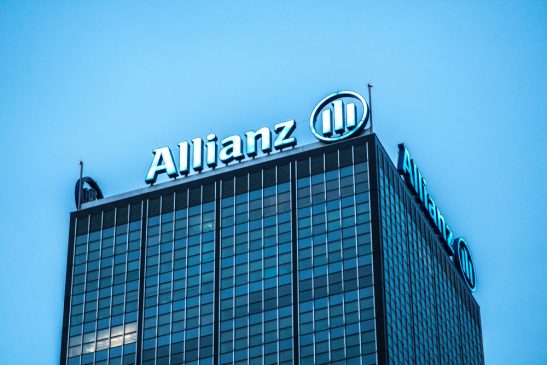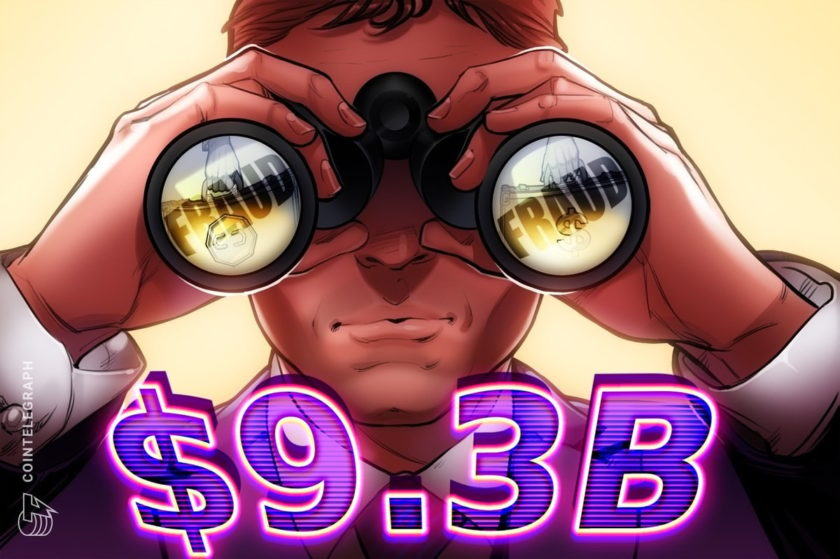Although Bitcoin (BTC) has experienced an unquestionably dismal 2018, with BTC losing 80% of its value since its year-to-date high, there are still a number of skeptics hell-bent at putting the crypto industry six feet under. Case in point, the chief of a world-renowned financial institution, set in its traditionalistic ways, recently lambasted this nascent asset class, urgently imploring regulators to “outlaw” cryptocurrencies in a fit of disgust.
Allianz GI CEO Wants Regulators To Ban Crypto
Per a Reuters article, Allianz Global Investments (Allianz GI) CEO Andreas Utermann, a seeming centralist through and through, overtly trashed cryptocurrencies, such as Bitcoin, during a panel discussion held in London. Utermann, 52, addressing regulators in attendance, adamantly cried that “you (regulators) should outlaw [crypto].” The member of Allianz GI’s top brass purportedly reasoned that as cryptocurrencies have “wiped out people’s savings,” this nascent asset class deserves to get clamped down on.
Utermann even quipped that he was personally surprised that regulators haven’t “stepped in harder” yet, only accentuating the inefficiencies of bureaucracies and centralized systems, while also making it apparent that governments don’t intend to curb crypto into nothingness.
While Utermann’s comments were nonsensical, as crypto’s boom and bust cycles are a byproduct of traditional market behavior, he was immediately backed up by his fellow panelist. Andrew Bailey, the head of the U.K.’s Financial Conduct Authority (FCA), a government-independent entity that can enact regulatory measures, stated that crypto assets have “no intrinsic value.”
The FCA incumbent then noted that his organization has its eye on cryptocurrencies, before adding that initial coin offerings (ICOs) could come under intense scrutiny in due time.
Related Reading: ICO Funding Continues to Plummet Amidst Crypto Bear Market
Crackdown May Be Inbound, But Future Bullish For Bitcoin
However, while Digital Currency Group founder Barry Silbert quickly “timestamped” the anti-crypto, pro-bank statements from Utermann on Twitter, immortalizing his intemperate comments in internet stone, some industry pundits are bracing for heavy-handed action from governments.
Fred Wilson, the co-founder of Union Square Ventures and a legend in the venture capital realm, recently took to his well-followed blog to discuss how he expects for Bitcoin to fare — a pertinent topic, even amid a market downturn. In a post titled, “What Bear Markets Look Like,” the Twitter angel investor drew lines between the Dotcom Boom (and bust) at the turn of the millennia, noting that just like technology stocks in 2002/2003, cryptocurrencies have posted a more than 80% loss in a year’s time.
The prominent investor added that cryptocurrencies, even BTC, could head lower from here. Giving his statement some rationale, Wilson explained that once Amazon (AMAZ) declined to 20 percent of its all-time high, the then-startup saw its public valuation experience another 50 percent haircut, summating to a jaw-dropping 90 percent loss. AMAZ’s debacle in the early 2000s may have been nothing but a blip on its multi-decade chart, but Wilson, a Bitcoin believer himself, is visualizing how cryptocurrencies could fall further, even while they have ground-breaking potential and seemingly endless upside.
More specifically, the investor, seemingly attributing AMAZ’s decimation to regulatory qualms, noted that “the crypto land” has yet to see regulators kick it while its down, which Wilson sees as an unfortunate eventuality. And, as hinted at by recent comments from the U.S. Securities and Exchange Commission (SEC), fears of impending governmental intervention, which may send certain crypto assets freefalling, may hold their water.
In an interview with NewsBTC, Stephen Innes, the head of Pacific-Asia trading at Oanda, echoed concerns that harsh regulatory action could be looming on crypto’s horizon. The short-term crypto bear, yet long-term Bitcoin optimist explained that government regulation may kill crypto’s status as a mostly anonymous asset class. Innes said that as anonymity and decentralization was at the heart of the “crypto movement,” the implementation of pro-transparency measures, especially those aimed at exchanges, could play out negatively for this market.
Still, while Wilson and Innes, two experienced investors, painted a dismal picture for crypto’s regulatory fate, the former emerging market specialist made in clear that eventually, a crypto asset, will garner global traction. Concluding his post with an optimistic tone, he wrote:
“I think some crypto asset (and possibly a number of crypto assets) will have a price chart like Amazon’s current one in 18 years. But we will have to do what Amazon did, hunker down and build value and survive, for quite a while to get there. And I think things will get worse before they get better.”
Travis Kling, founder and chief investment officer at Ikigai, also recently made it clear that Bitcoin’s rise to the top of the world won’t be instantaneous. The former Point72 Asset Management portfolio manager noted that Bitcoin is just at the start of a “multi-year, multi-decade” journey.
Featured Image from




